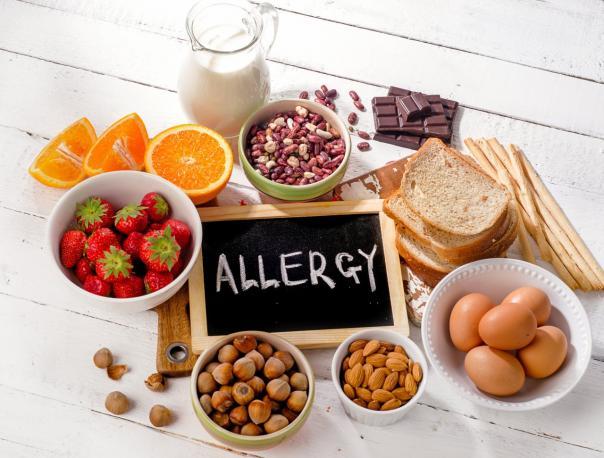
EF-group provides leading procurement solutions and menu management tools across a number of UK industries, including the healthcare and education sectors.
With 6% of people in the UK reportedly having food allergies, frequent and thorough allergy training in the catering industry is important for keeping these people safe. Catering businesses need to pin down their allergy training procedure to avoid confusion over how to deal with allergens and make sure customers can feel confident in their services.
What should caterers be trained on?
14 allergens
In 2014, the Food Standards Agency introduced an allergy law which states that food businesses must inform customers if their food contains any of the top 14 allergens, including celery, cereals containing gluten, eggs, crustaceans, fish, milk, lupin, mustard, molluscs, peanuts, sesame seeds, tree nuts, soya and sulphites.
As part of UK law, all businesses serving food must include this in initial training for all staff and continue to remind everybody about these allergens. Having these displayed somewhere prominent where staff will see it can be a good way to keep the allergens fresh in your mind. You must also check all packaging, displays and menus regularly to make sure these are up to date. If food contains these allergens, it should be made clear to customers.
Catering to allergens
If a consumer has an allergy, the communication process is crucial for ensuring they aren’t served something that could put them in danger. There also needs to be an indestructible communication process internally, so all staff know of the allergy and know how to proceed to guarantee the consumer's safety.
In training, you could run role-play sessions to make sure staff are appropriately reacting to being told about an allergen. Allergens also need to be recorded as menus or recipes change, and the team should be aware of the recording process.
Preventing cross-contamination
Just as you should prevent cross-contamination between surfaces and utensils used to prepare raw produce and cooked items, your team also needs to stay on top of cross-contamination for common allergens. This involves regular reminders to wash your hands thoroughly between preparation of dishes with and without certain allergens, clean utensils before each usage and disinfect work surfaces.
Labelling and storing produce
Foods must be correctly stored and organised, and detailed allergen labels must be easily accessible. Kitchen staff should undergo regular training to make sure they’re using the most efficient and useful labelling and storing techniques.